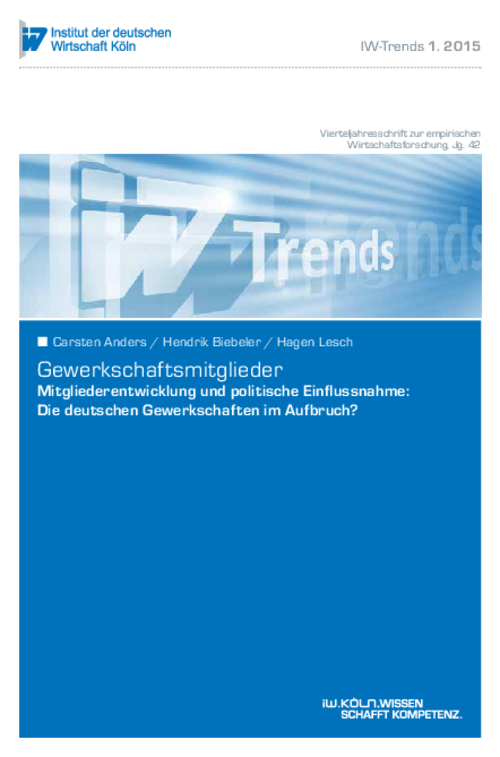A Fresh Wind for Germany’s Trade Unions?

Membership Growth and Political Influence
IW-Trends

A Fresh Wind for Germany’s Trade Unions?
The trade unions in Germany appear to be in the ascendant. An analysis of the results of the German General Social Survey (ALLBUS) shows that the net density rate of trade unions has recently risen to 20.6 per cent, an increase of 2.6 percentage points over its low point in 2006. Moreover, the trade unions have managed to return from the political sidelines onto which they manoeuvred themselves with their opposition to Agenda 2010, a reform programme launched by a Social Democratic / Green coalition government in 2003. However, whether these successes will endure is by no means sure. An analysis of union membership reveals that unionisation of male, full-time and older employees is above average. However, the latest membership growth will only continue if the unions succeed in organising more women, part-timers and young people.

Carsten Anders / Hendrik Biebeler / Hagen Lesch: Mitgliederentwicklung und politische Einflussnahme: Die deutschen Gewerkschaften im Aufbruch?
IW-Trends

More on the topic

German Wage Policy between Inflation and Stagnation: Are Conflicts with the Aims of Monetary Policy Looming?
After the economic and financial crisis of 2008/9, the German labour market soon began to recover, creating scope for a comparatively expansive wage policy.
IW
The Pros and Cons of Trade Union Membership
The decline in collective bargaining coverage in Germany is often attributed to the reluctance of companies to join an employers' association which negotiates collective agreements.
IW